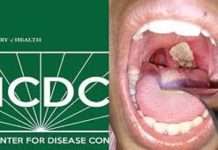Dr (Sir) Evans Chukwuemeka Chidomere is a Fellow of the Pharmaceutical Society of Nigeria and traditional prime minister of Amatta autonomous community in Ikeduru Local Government Area (LGA) of Imo state. In this exciting interview, Chidomere, who joined the league of octogenarians last November, recalls his work experiences at the Federal Ministry of Health and the World Health Organisation (WHO) and how he joggled these with ad hoc appointments by faculties of pharmacy to train students in his areas of specialisation. He also discusses pharmacy practice, his family and pastimes, as well as the ravages of COVID-19. Excerpts.
Kindly tell us about yourself
I was born on 11 November, 1939, to Mr Samuel and Madam Catherine Chidomere, both of blessed memory. Aside from being a Fellow of the Pharmaceutical Society of Nigeria (PSN), I am also a Fellow of the West African Postgraduate College of Pharmacists (WAPCP) and Fellow of the Nigerian Academy of Pharmacy (NAPharm). I am also a knight of St. Christopher of the Anglican Church.
Last November you joined the league of octogenarians when you marked your 80th birthday anniversary. What does this new age mean to you and how has it affected your perspective of life generally?
I attained the age of 80 years on 11 November last year and joined the league of octogenarians. It is by the grace and favour of God that man attains the age of 80 years and beyond. Having attained this age by the grace of God, it means that a person should live a righteous life, doing those things that are pleasing to God and to humanity.

Tell us about your early childhood days, your education and the factors that helped to shape your adult life and career choice.
I was mentored from the tender age of about six years by my late loving elder brother, Mr Lambert Chidomere, who was a teacher and principal of secondary schools at different times. So, I received my early primary school education from 1946 to 1953, in different primary schools, following my elder brother’s postings to different Anglican schools in the then Eastern Region of Nigeria.
I attended Okrika Grammar School in Port Harcourt from 1955 to 1959; and Federal Emergency Science School, Lagos, from 1961 to 1963. I was at the University of Ife (Ibadan Campus) to study Pharmacy from 1964 to 1966 and from 1970 to 1971, before proceeding to Chelsea College, University of London, to do my doctorate degree in Pharmaceutical Chemistry, Drug Metabolism and Pharmacokinetics in 1976.
There are a number of factors and circumstances that helped to shape my adult life and career. To start with, I recall that, at the Federal Emergency Science School (FESS) in Lagos, when I was studying for my advanced levels, occasionally, some colleagues and I visited the nearby General Hospital in Lagos, for one purpose or another. During some of these visits, we saw some smart, well-dressed and good-looking guys working in the hospital, and on enquiry, we were informed that they were pharmacy students doing their long vacation jobs at the hospital. This gave me a good impression of pharmacy students and Pharmacy.
I can still remember some of the guys – who I subsequently met at the Ibadan Campus of the University of Ife, when I entered in 1964. They included persons like: Julius Adelusi-Adeluyi, Ifeanyi Atueyi (known then as “Atus Pfizer”), Frank Effanga, Bona Obiorah, Eugene Okonkwo (Chixy), Felix Agwaniru (Agwuns), “Mutanda” Anohu, Felix Anazodo (Zotus) and others.
Secondly, when I informed my mother about an offer of admission into the University of Ibadan in June 1963, to study Veterinary Medicine, with effect from October 1963, and gave her the details, she was unimpressed. She said she wished I would study a course that I could use to treat the family and not animals. I felt her emotions and shared her feelings.
At that moment, Pharmacy came to my mind and I immediately made up my mind to abandon Veterinary Medicine and study Pharmacy. I proceeded straight to the Ibadan Campus of the University of Ife to see the Head of the Department of Pharmacy. I think he was an Indian. I explained myself to him and gave him my results which he was pleased with, he assured me of admission. But he asked me to first do a one-year preliminary course (including Physics, which some students did not do in the GCE A/levels at FESS).
Subsequently, I applied for the Federal Government Scholarship Award to study Pharmacy at the University of Ife, Ibadan Campus, and I received the award in October, 1963, before I entered the university in 1964.
However, certain persons mentored me and helped to shape my education and career choice. These persons included my late elder brother, Mr Lambert Chidomere, Mr S.O Ogoazi (who was the principal of Okrika Grammar School, Port Harcourt), and Professor Arnold Beckett, who was my PhD supervisor at Chelsea College, University of London). He was also the PhD supervisor in Pharmaceutical Chemistry to some Nigerian pharmacists in the 1970s. These included Prof. Etienne Essien and Prof. Festus Ogunbona.
You have made your mark in academic pharmacy having lectured at the University of Nigeria, Nsukka and Imo state University. How would you describe your experience in the field of academic pharmacy?
My experience in the field of academic pharmacy has really not been that extensive or comprehensive, when compared with those who have spent all their working life in academic pharmacy. This is because the greater part of my working life as a pharmacist was spent in the government administrative and regulatory branches of pharmacy practice. That is at the Federal Ministry of Health (FMOH) and the National Agency for Food and Drug Administration and Control (NAFDAC).
My sojourn in academic pharmacy has been an ad hoc mission to meet the training needs of some faculties of pharmacy or medicine in my subject areas of specialisation in Pharmacy. For example, between 1977 and 1979, my first recruitment was as a lecturer in the Department of Pharmaceutical Chemistry, University of Nigeria, Nsukka. I worked there for only two years, before my appointment by the Federal Ministry of Health in April, 1979.
Also, between 1983 and 1984, I was posted on one-year secondment by the Federal Ministry of Health (FMOH) to the University of Lagos, College of Medicine, and my appointment was as a senior lecturer and head of the Department of Pharmaceutical Chemistry, to help Prof. E. E. Essien (my friend and colleague at Chelsea College, University of London) in establishing the new school of pharmacy at the College of Medicine, University of Lagos.
From 2006 to date, that is, after my retirement, I was given a contract employment as senior lecturer at the Imo State University, College of Medicine, Department of Pharmacology and Therapeutics, where I teach medical students.
This would help to explain my opening statement on my experience in the field of academic pharmacy.
How would you describe the quality of pharmacy education these days compared to the days when you studied? What areas do you think require improvement?
From what we see and know, I think that the quality of education in Nigeria generally in all professions and not only in Pharmacy has declined in recent years. This is since about late 1990s to date, when compared with the past years, especially, between 1960 and 1980. This is because most of the factors that affected education in Nigeria are general factors that are not unique to Pharmacy. For Pharmacy, I think that all the areas of pharmacy practice would require some improvement.
The COVID-19 pandemic has exposed the inadequacy of our healthcare system, especially as it relates to poor infrastructure and overdependence on foreign countries for our drug needs. As a stakeholder, how do you think we can change this narrative in the area of self-sufficiency in our drug needs?
The global coronavirus outbreak in December 2019 (COVID-19) has exposed the healthcare inadequacies of different countries in the world. Key among these inadequacies are on infrastructure, healthcare personnel safety and pharmaceuticals.
For me the pharmaceutical challenges are mostly in two areas. These are insufficiency in the availability of known drugs for the treatment of the COVID-19 infection; and development of vaccines and drugs for the prevention and treatment of the infection – which is still mostly at the experimental/clinical trials stage.
To remove the above challenges and change the narrative, especially in our national drug needs, requires the attention and action by the government, concerned agencies, such as the National Institute for Pharmaceutical Research and Development (NIPRD) and the pharmaceutical industry.
Tell us about some of the most memorable moments of your career.
The most memorable moments of my career were the years between 1981 and 1991, when I also held external appointments outside the Federal Ministry of Health. For instance, I worked as a consultant (temporary adviser) to the World Health Organisation (WHO) on drug regulation and information for eight years and as Member of WHO’s expert committees.
These committees included: Planning Committee for the International Conference of Drug Regulatory Authorities (ICDRA), held yearly in different continents, and this was between 1981 and 1989; Conference of Experts on the Rational Use of Drugs (CONRAD, 1995); as well as the WHO/AFRO Experts Meeting on Essential Drugs in 1991.
The above experiences are memorable to me because I learnt so much and they provided me the opportunity to travel extensively to different parts of the world in Africa, Asia, America and Europe.
Looking back, do you have any regrets? Are there things you would have loved to do differently if the hands of time were to be taken back?
Looking back, I do not have any regrets. And there are no things that I would have loved to do differently, if the hands of time were to be taken back.
Tell us about your pastime activities and some of the lifestyle measures you have adopted to keep fit at 80
In aging, especially after retirement from active service, it is necessary to be engaged in some form of stress-free activities that take one outside the house, to avoid remaining indoors for the rest of one’s life. Therefore, some of my pastime activities include participating in the meetings and activities of my state chapter of the PSN, the meetings and activities of the Knight of St Christopher of my diocese; and, of course, community services, especially in relation to my role in the Eze Cabinet of my autonomous community where I am the traditional prime minister.
To keep fit at 80 I take regular exercise by walking inside and outside my compound. I take regular steps to boost my immunity by exposing my skin to sunlight for about 30 minutes between 10 and 11 am. I am also careful about my choice of diet. I try to eat diet that are rich in vegetables and fruits. I avoid red meat and cholesterol-rich food. I eat more of chicken (white meat) and fish.
Kindly tell us a little about your family. Are any of your children into Pharmacy or related healthcare practice?
My first marriage was to Late Mrs Ada Philomena Chidomere and we had three daughters. I am now married to Lady Miriam Chidomere and we have a young son. My first two daughters are British citizens by birth. All my three daughters live in Britain with their families. They are Nigerian University graduates with 2nd Class Upper Division degrees in Electronics Engineering, from University of Nigeria Nsukka (UNN); Biochemistry from University of Uyo (UNIUYO); and the last studied Economics at Obafemi Awolowo University, Ile-Ife. My young son is about to enter the university. I give God all the glory.











Thank you so much for the interesting news. I hope to see more updates from you.
tadalafil prices – buy tadalafil online generic tadalafil